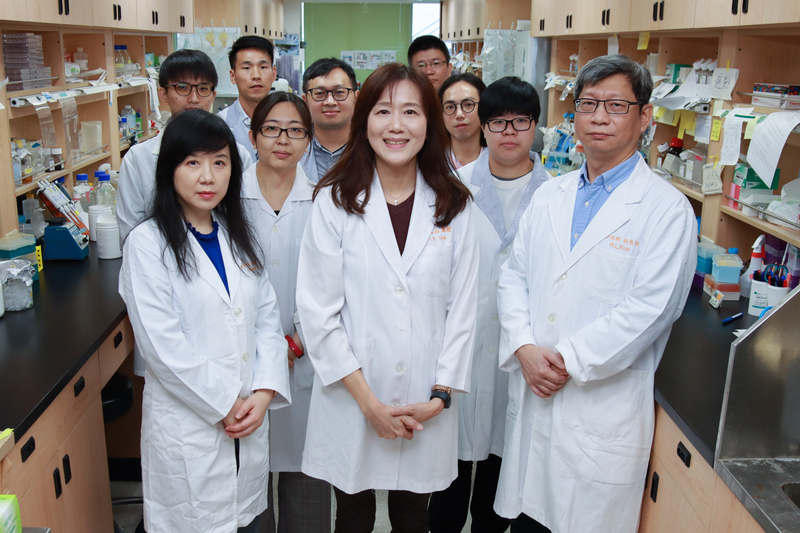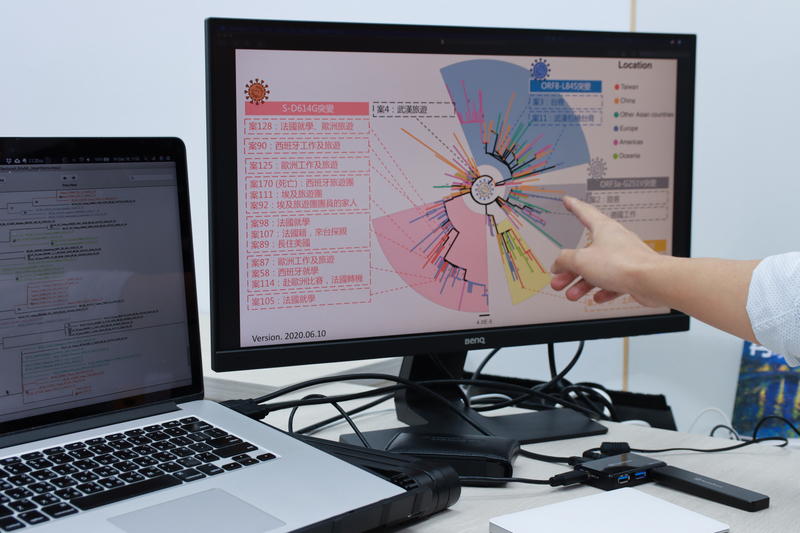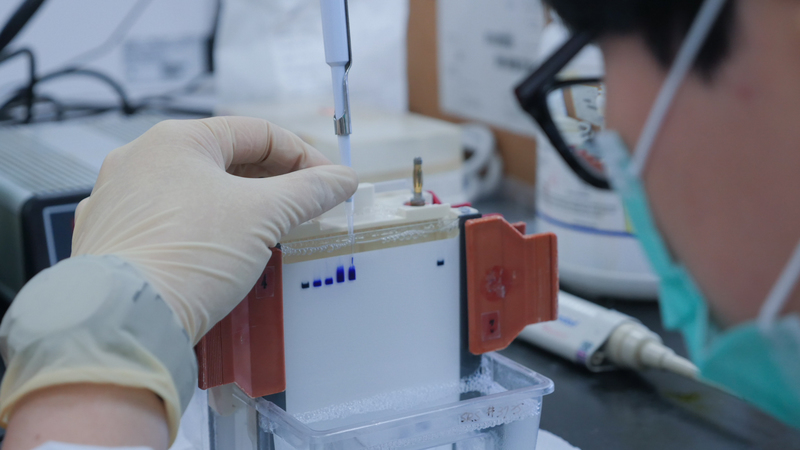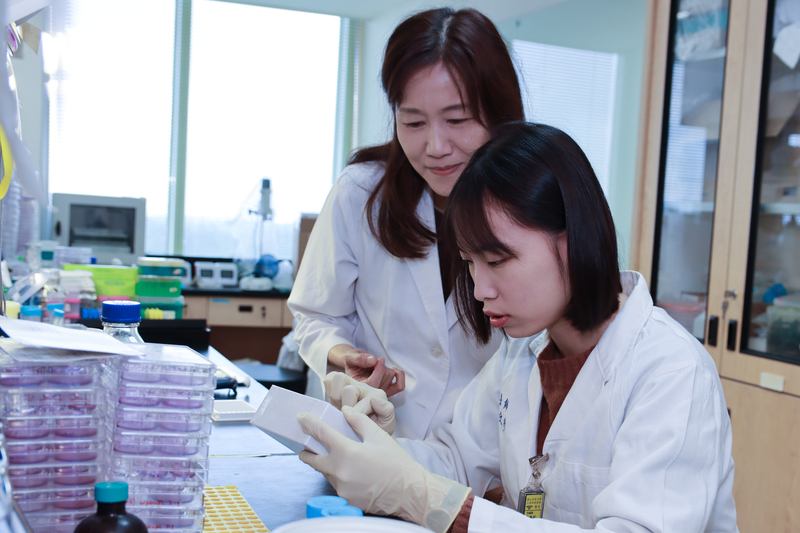Exclusive interview –Research Center for Emerging Viral Infections, Chang Gung University(CGU) Establishing the most complete database for COVID-19

“In the past, I think the epidemic for the future will be Influenza, however, it is unexpected that COVID-19 has overtaken it.”
Looking back in 2020, the COVID-19 pandemic has had an unprecedented impact on the world. SHIN-RU SHIH, director of the Research Center for Emerging Virus Infection, Chang Gung University, who has studied infectious viruses for more than 20 years, had an exclusive interview with Ministry of Science and Technology Center for Global Affairs and Science Engagement, talking about how to organize a " national team for virus laboratory" to fight the pandemic on the front line, and deepen the cultivation of talents to face the next wave of unknown infectious diseases.
The first research center for emerging virus
Establishing in 2009, the Research Center for Emerging Virus Infection, Chang Gung University(RCEVI) is the only virus infection research center among education and research organization funded by the Ministry of Science and Technology and the Ministry of Education; it is also the first domestic research center cooperated with the Taiwan Centers for Disease Control that studying viruses that are prone to mutation and cause epidemics .
Shih, the director of RCEVI and also a professor of Department of Medical Biotechnology and Laboratory Science on CGU, has been dedicated to the testing of emerging viruses, antiviral therapies, and drug vaccines for many years, especially in the research of influenza virus and enterovirus 71, which are two kinds of RNA viruses that are prone to mutation.
In addition to working as the director of RCEVI, Shih is also an expert advisory member of the Central Epidemic Command Center, which is the reason why RCEVI was immediately appointed to study on how to combat the unknown new coronavirus when COVID-19 broke out in 2020.
Establishing the most complete database for COVID-19
Relying on the past experience in researching emerging viruses, RCEVI is responsible for inspecting and identifying the pathogens rapidly and accurately during the pandemic, and assigns virus strains, antibodies and other reagents to other research organization timely to jointly develops prevention and treatment strategies. As the RCEVI is located nearby Taoyuan Airport, it undertakes a large number of samples for inspection from arriving travelers. RCEVI thus has collected virus strains from all over the world, and completed gene sequencing for 42 separated virus strains, making it the most complete COVID-19 database in Taiwan.

RCEVI has successively cooperated with universities in the United States and Australia to develop diagnostic methods, therapeutic antibodies and antiviral drugs; it has also completed the development of a "COVID-19 neutralizing antibody titer test kit" to improve the safety of the overall test, and cooperated with Formosa Biomedical Technology Corp. on technology transfer.
International cooperation. From mutual benefit to mutual trust.
RCEVI has three major tasks: rapid testing, basic research and international cooperation. Shih said that the prevention of infectious diseases is borderless. If Taiwan do not cooperate with other countries, it will be isolated. Take the COVID-19 as an example. Taiwan’s achievements in epidemic prevention are obvious to all around the world. Still, Taiwan must cooperate with other countries to develop reagents and vaccines to increase its research and development capabilities.
Since its establishment, RCEVI has completed 14 academic exchanges and research collaborations with foreign academic institutions, and published more than 90 journal articles. Among them, Shih has a deep impression on the" RESEARCH GRANTS HFSP AWARDS 2015”. "This project is very challenging. It allows me to cooperate with outstanding scientists from many other countries and gain the opportunity doing something that contributes to all mankind."
This research grant is provided by the Human Frontier Science Program Organization (HFSPO) in France. The requirements for this grant are very strict and must be a multinational research and a cross-disciplinary postdoctoral researcher must be included in the research team.
In 2015, the application is highly competitive with a total of over 1,000 letters of intent submitted. Shih’s team which consisted of researchers from United State and Europe was ranked 2 among 21 awarded program. During the 3-year program, 3 papers were published from each member of Shih’s team and until now they still retain closed cooperation. One of the team members, Dr. Lee, Kuo-Ming, a postdoctoral research in molecular biology field has stepped into virus research, and now he is an assistant professor at Chang Gung University, which also expanded the research team.

Shih believes that international cooperation must be based on "mutual benefit and mutual trust." Cooperation model can be long-lasting when benefits go for all parties while building friendship at the same time, rather than only focus on signing a memorandum of understanding and performance.
From SARS to COVID-19, only by nurturing younger generations the experience can be passed on
As a female scientist, Shih understands better the pressure the research team undertake and unite the team with her delicate, warm, and empathetic characteristics.
Shih is committed to cultivating younger generations. Her research team includes university students, masters, doctors and post-doctoral. The background of members includes: mathematics, information management, biophysics, clinical medicine and other fields. In addition to lecture gave by teacher, there are also seniors leading the operation of experiments with their experience.

Shih mentioned that during the outbreak of SARS, Taiwan established more than 10 P3 laboratories, but when the epidemic broke out, only 5 were able to be activated immediately. "This brings us a lesson. In addition to hardware maintenance in the laboratory, the experience inheritance for researchers is also very important."
From SARS to COVID-19 that breakout 17 years later, Shih deeply felt the importance of talent cultivation and replacement of old with new. "17 years ago, I had no experience, but I was full of power; now I am very experienced, but I become less strong and get tired easily." She is convinced that the achievements and contributions brought by research will help nurture more virologists, combat next wave of unknown infectious diseases and protect people’s health.
Source : https://gase.most.ntu.edu.tw/articles/59